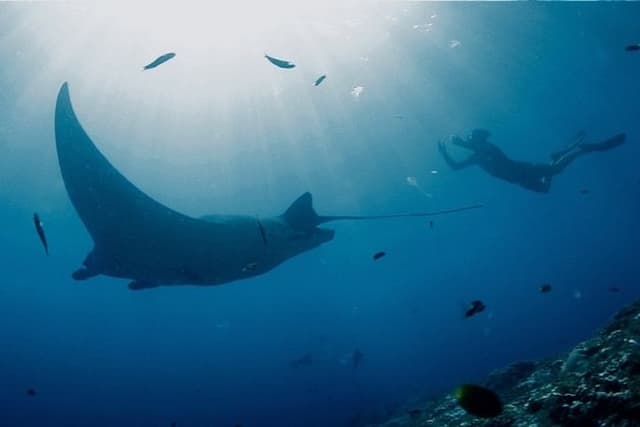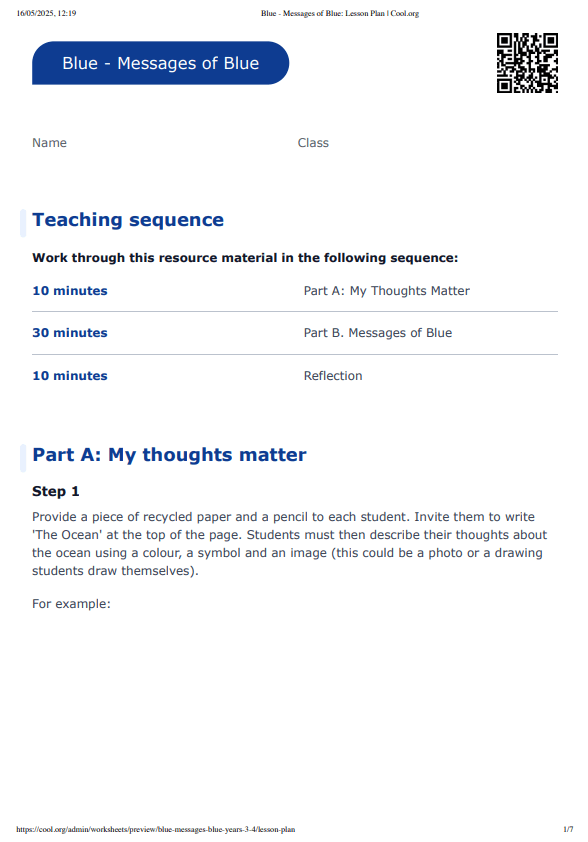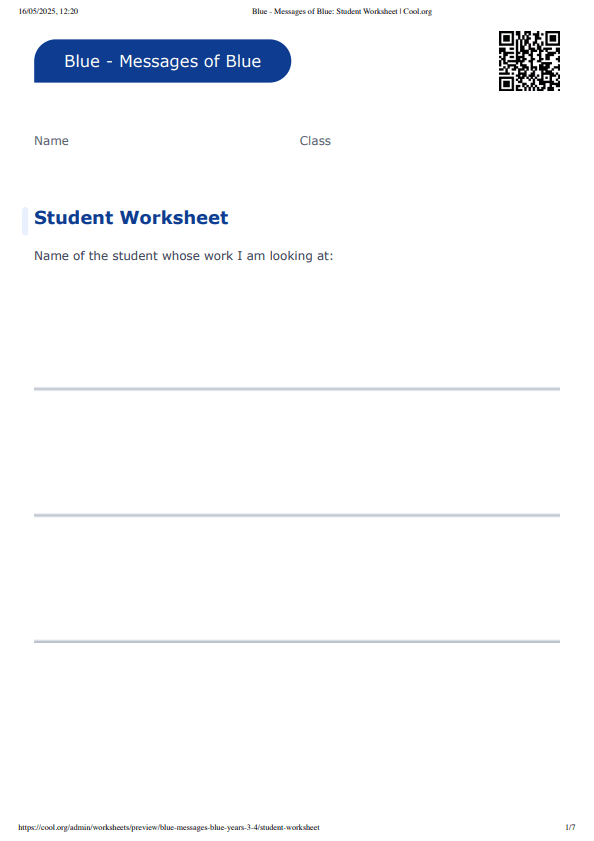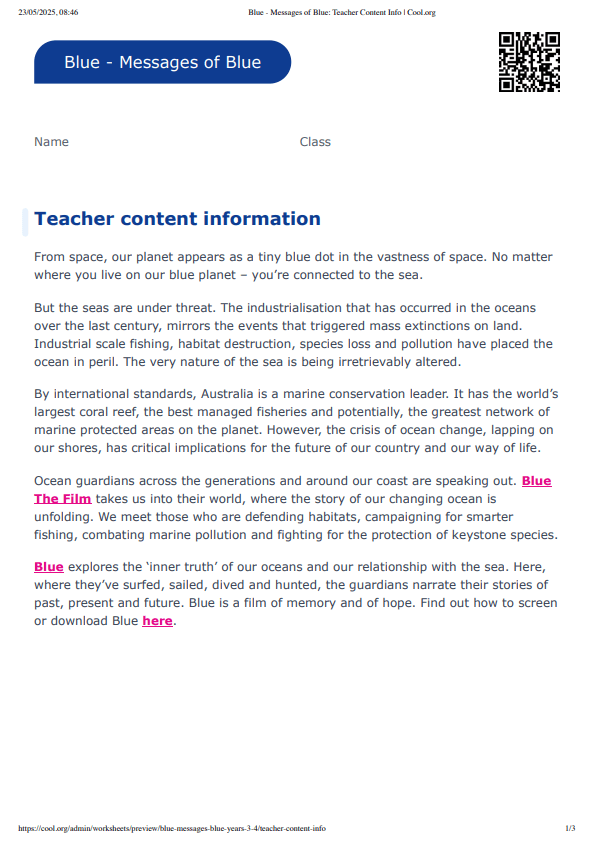
Blue - Messages of Blue
Lesson1 of 7 in this unit
PrimaryYear 3 - 4EnglishLearning through filmScienceEnvironmentalBiodiversityConservationOceansWater
Summary
Lesson guides and printables
Lesson Plan

Student Worksheet

Teacher Content Info


Lesson Plan

Student Worksheet

Teacher Content Info
